If you mention persimmons to people, they will often pucker up – and for good reason. As Josh, from “State of the Ozarks” blog writes, “Before autumn brings a good, hard frost, persimmon fruit (resembling small pumpkins) is hard and a light-greenish yellow. The alum content of the persimmon is also so high, if you taste one, you might be puckered up for a week.” If you wait until after the first hard frost, the fruit changes drastically to a shade of reddish orange and the alum is replaced by sugar. This is when it’s perfect for persimmon bread.
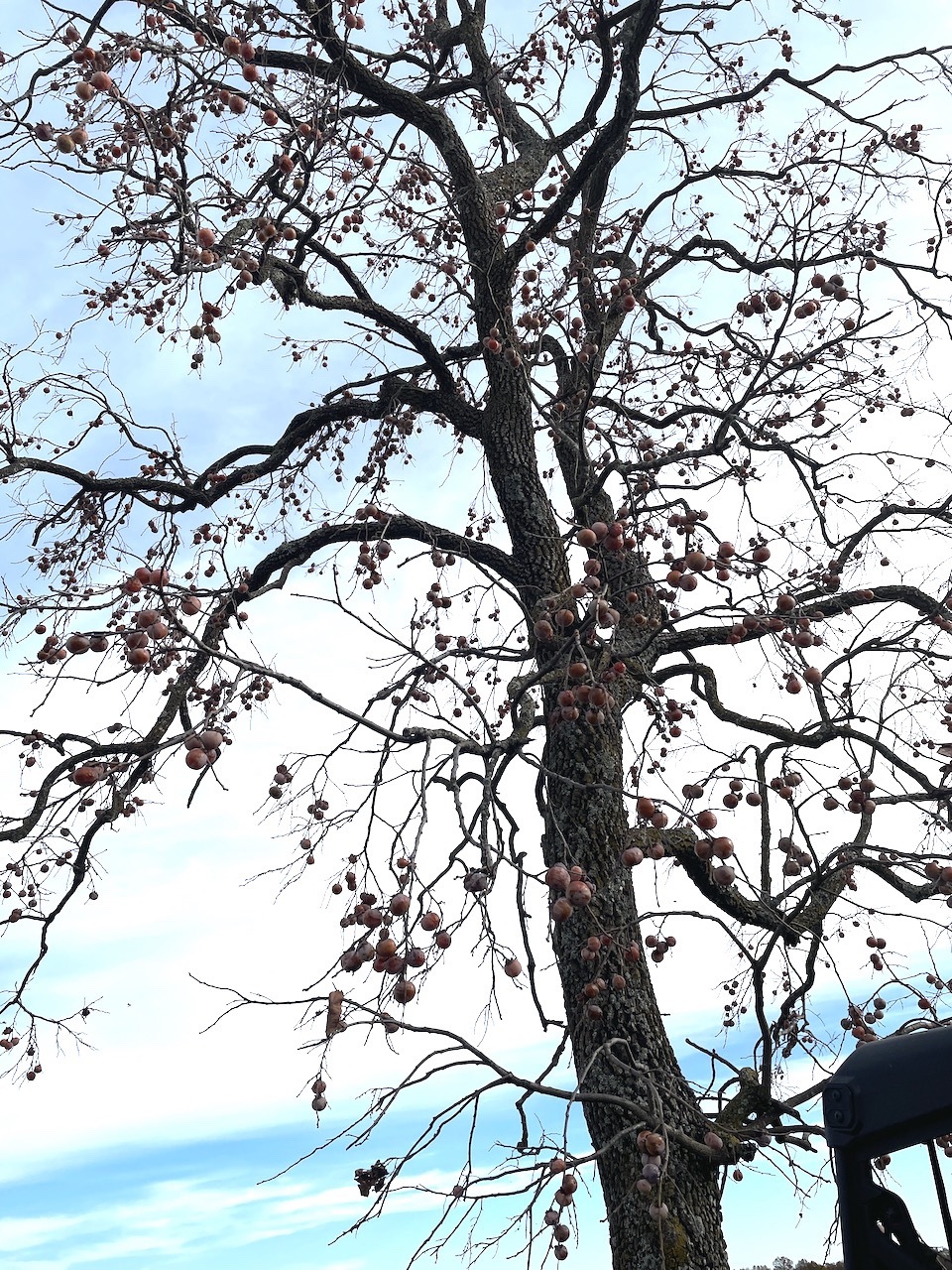
We have a few wild persimmons in a grove here at our place in the Ozarks, so after the first frost in early November, we headed out and shook the trees to free the persimmons.
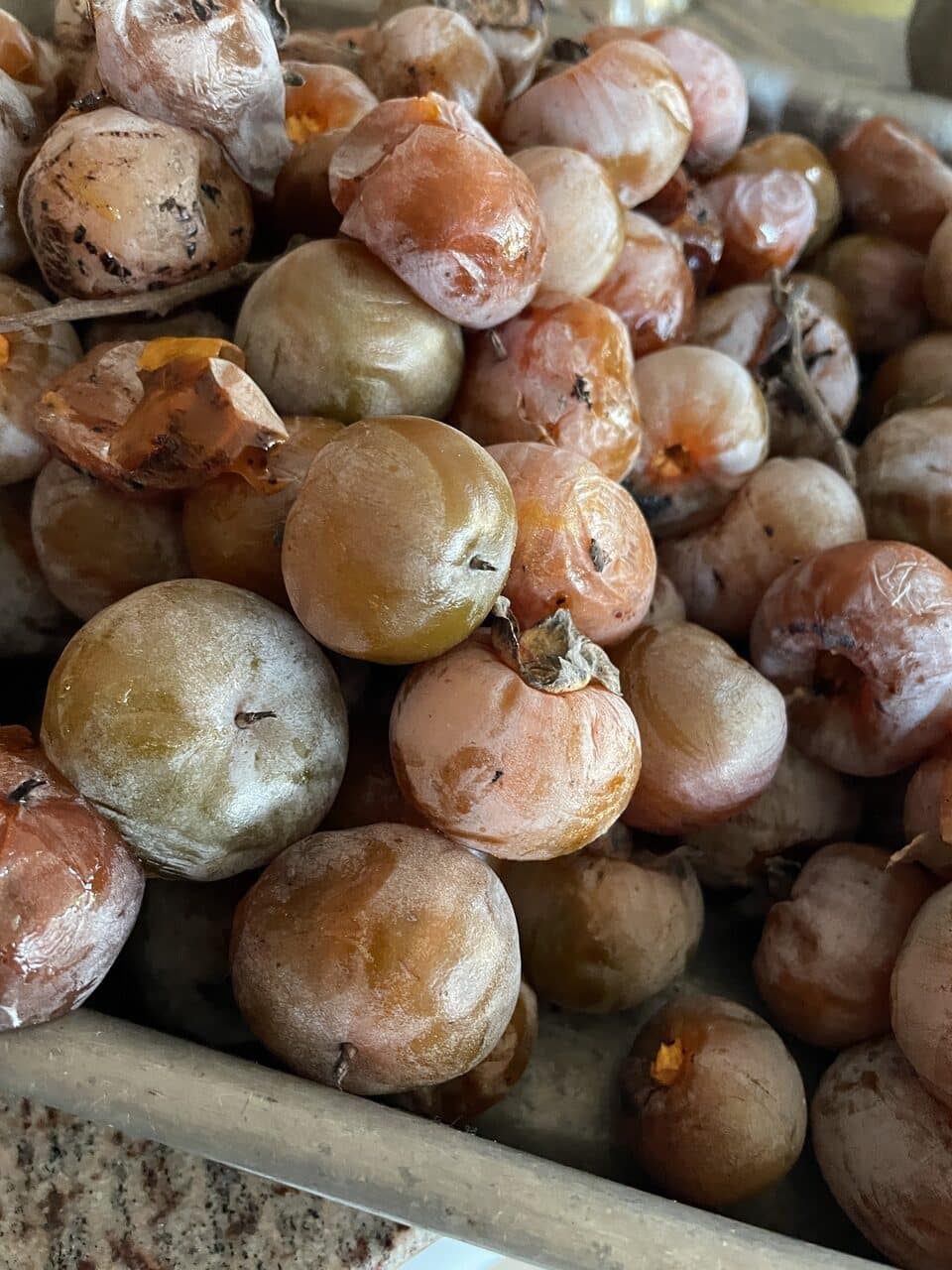
Let’s just say there was some ducking going on as a result of that exercise.
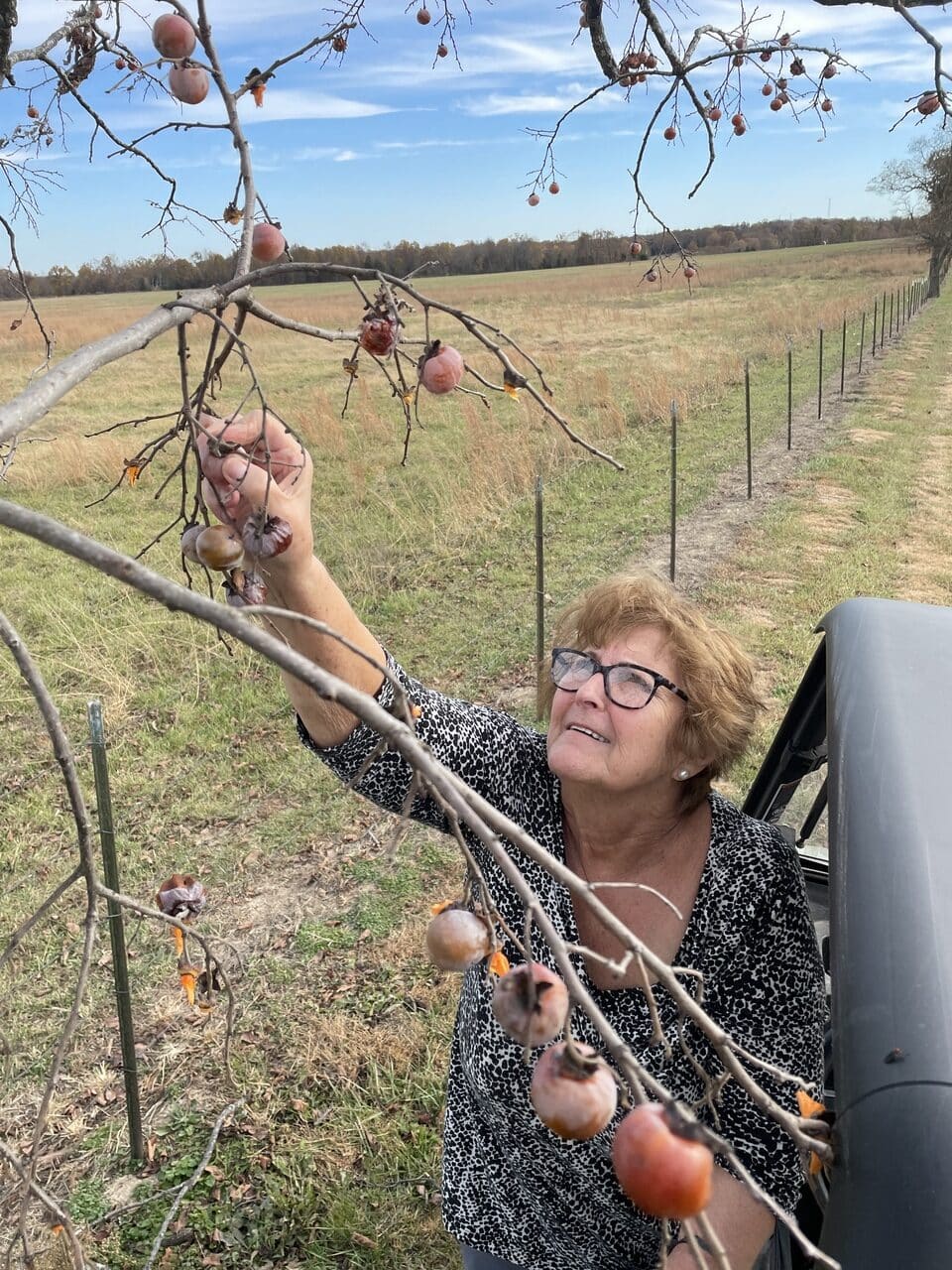
Later that same week, I went over to my friend’s place, and we actually picked the persimmons off her trees out near a cow pasture.
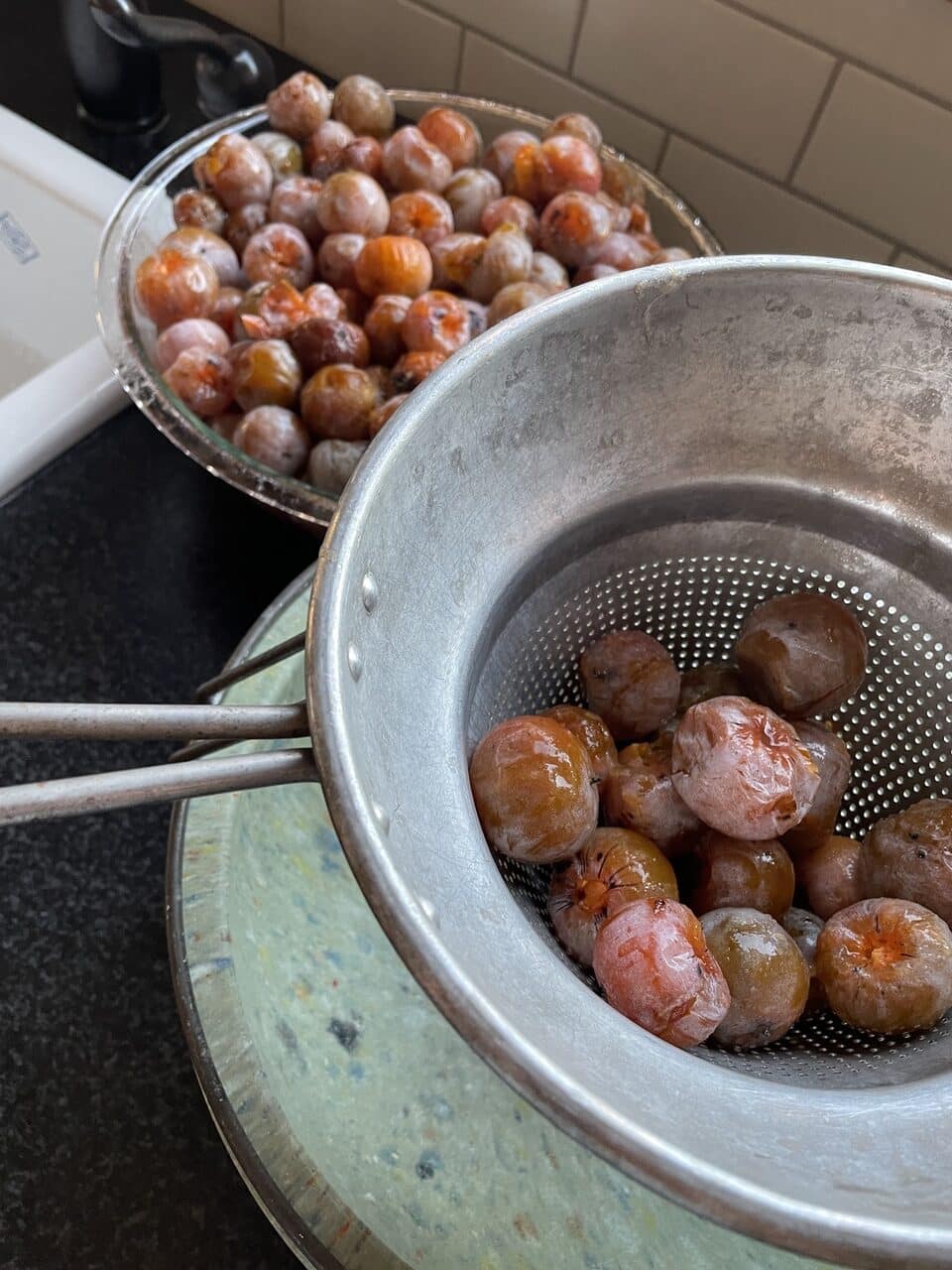
I found this recipe online from Alamanac.com for persimmon bread. It contains most of the usual things you’ll find in making a bread such as this one: flour, sugar, baking soda, salt nutmeg, butter, eggs, nuts and raisins. It also calls for brandy (I used bourbon) and two cups of puréed persimmons.
You cannot chop up the persimmons and use them. They come with seeds.
So, the best way to use them in breads and cakes and such is to puree them. I have an old aluminum canning colander with a stand and a wooden pestle.
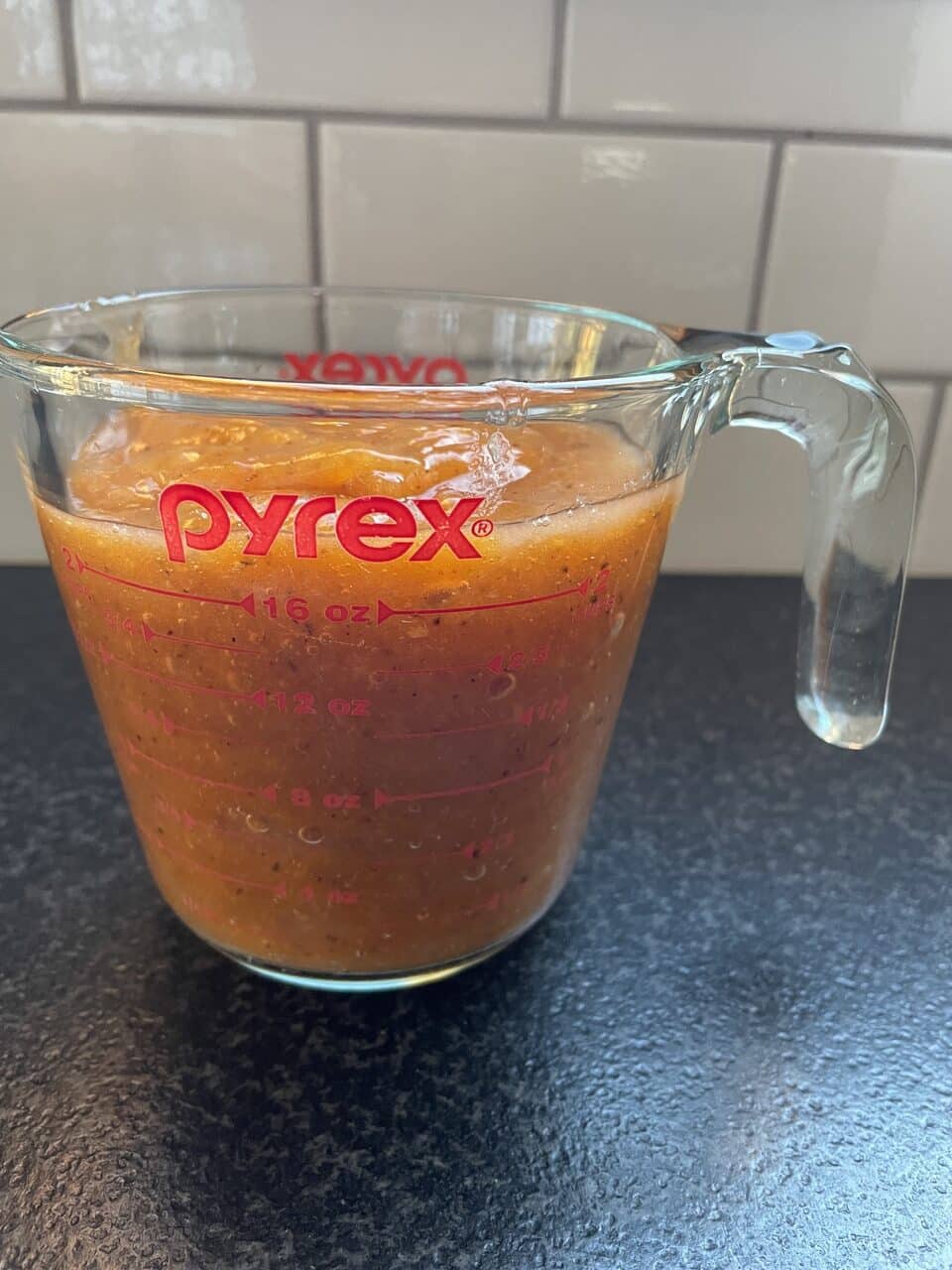
This is how I made my purée. I placed a bowl under the stand and threw a bunch of persimmons into the colander and pressed the thick, gooey insides out of the fruits into a bowl below the stand. If you have extra, you can keep it in the refrigerator for another recipe and another time.
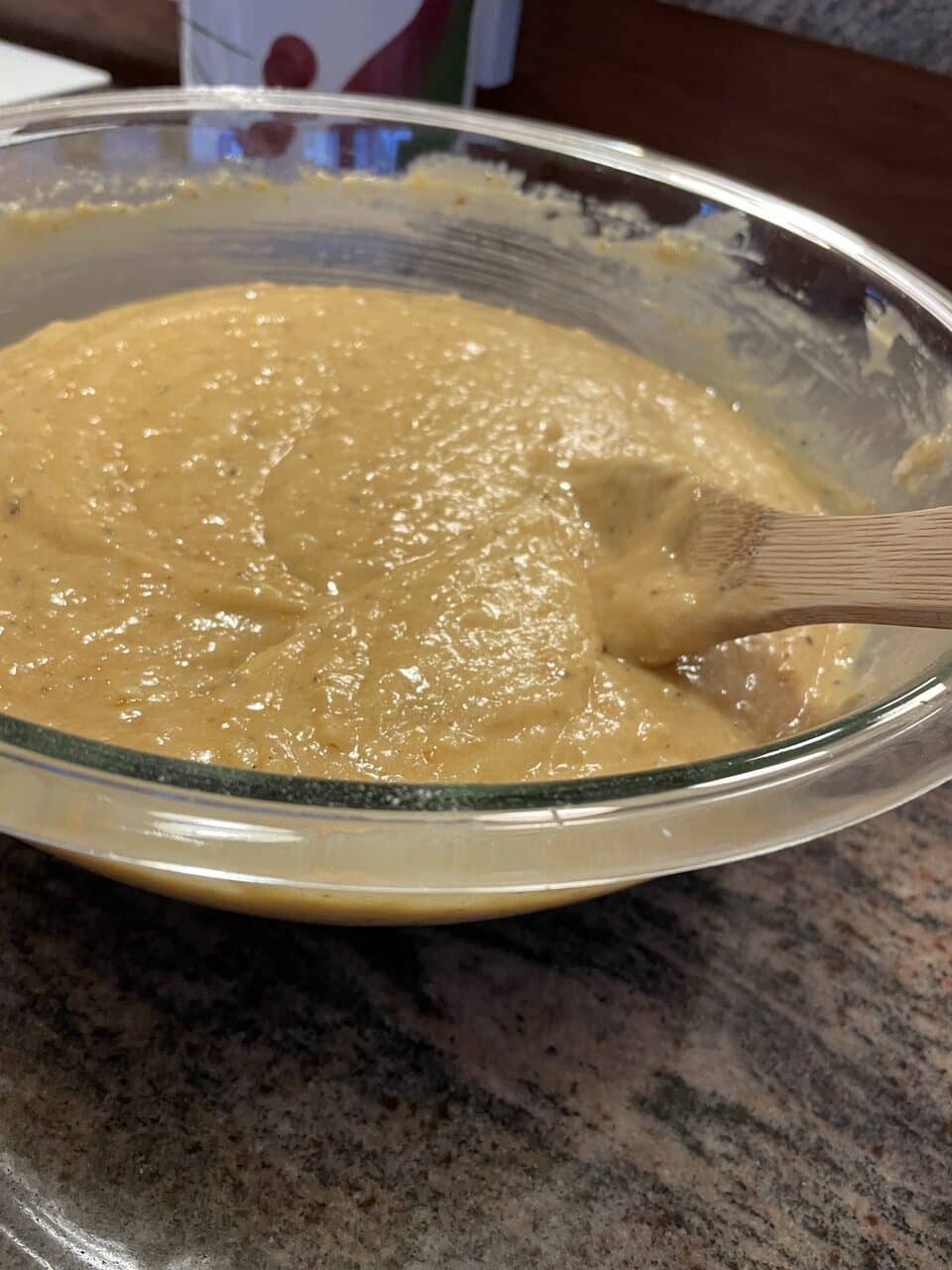
This persimmon bread recipe is earthy and sweet, with a hint of bourbon. I made three small loaves from this batch. Of course, I gave one loaf to my friend who helped me harvest the persimmons. It was delish.
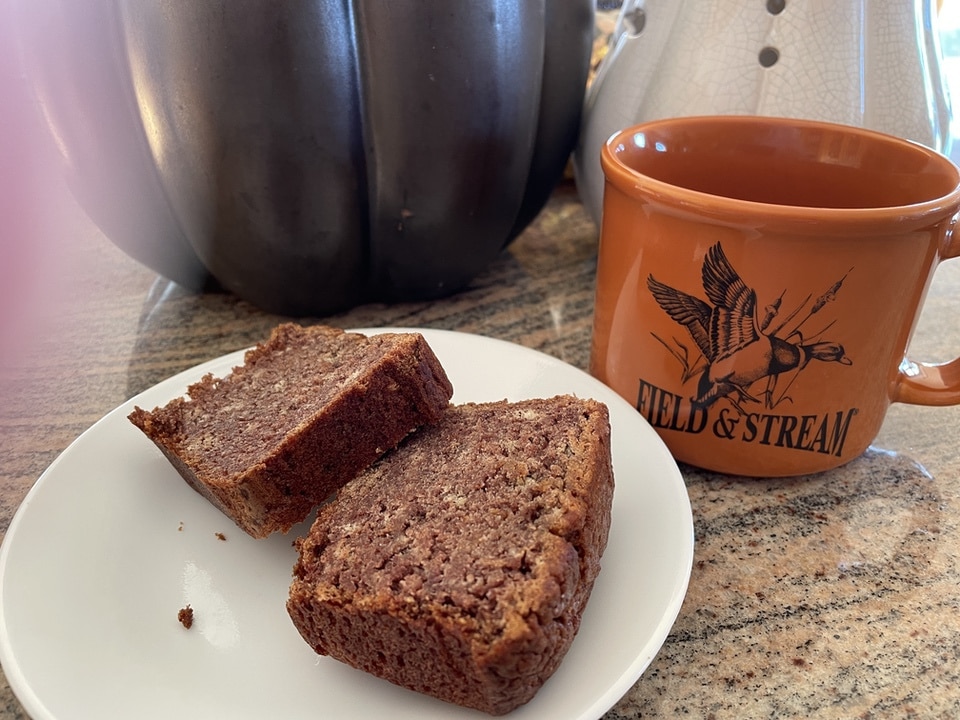
Here’s a fun thing to do with the persimmon seeds. I went to the best resource for folklore and old time traditions, “The Farmers’ Almanac.” According to the Almanac, when cut into two pieces, “the persimmon seed will display one of three symbols: a fork shape indicates a mild winter. A spoon shape stands for a shove to dig out the snow. A knife shape means a cold icy winter (where wind will cut through you like a knife).”
Note: You must use local persimmons to predict your own weather.
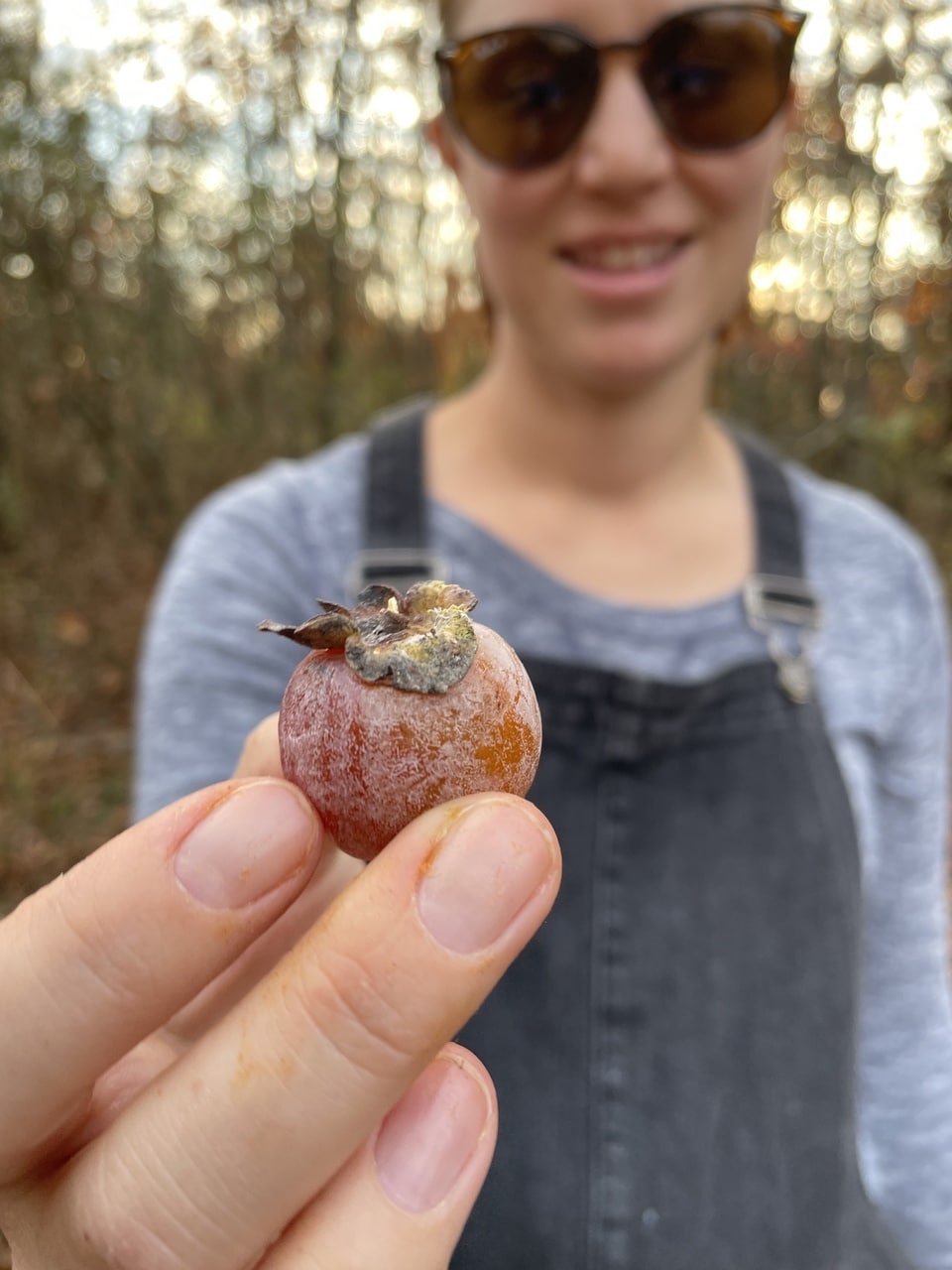
In order to discover what your winter will be like, you must wash the persimmon seeds, as they tend to be like pumpkin seeds after extraction from the fruit – slimy. Then, carefully, using an Xacto knife or something similarly sharp, slice the seeds the long way on a cutting board and look for the utensil inside.
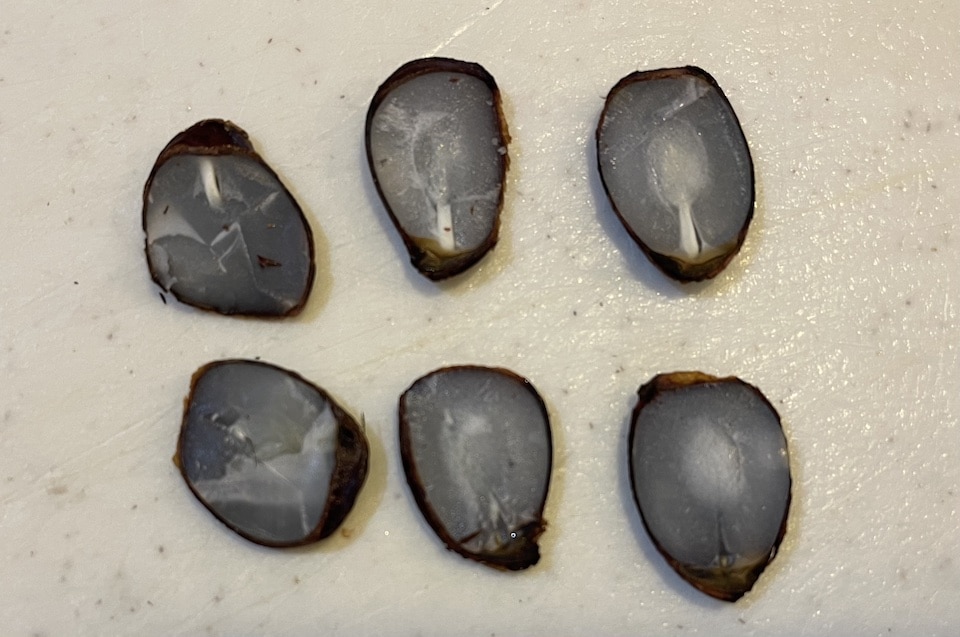
I had three seeds, and as you can see by the photo, it looks like two spoons and a knife. Or, maybe it was an unformed spoon. Time will tell this winter as to whether or not the persimmon predicted the weather correctly.
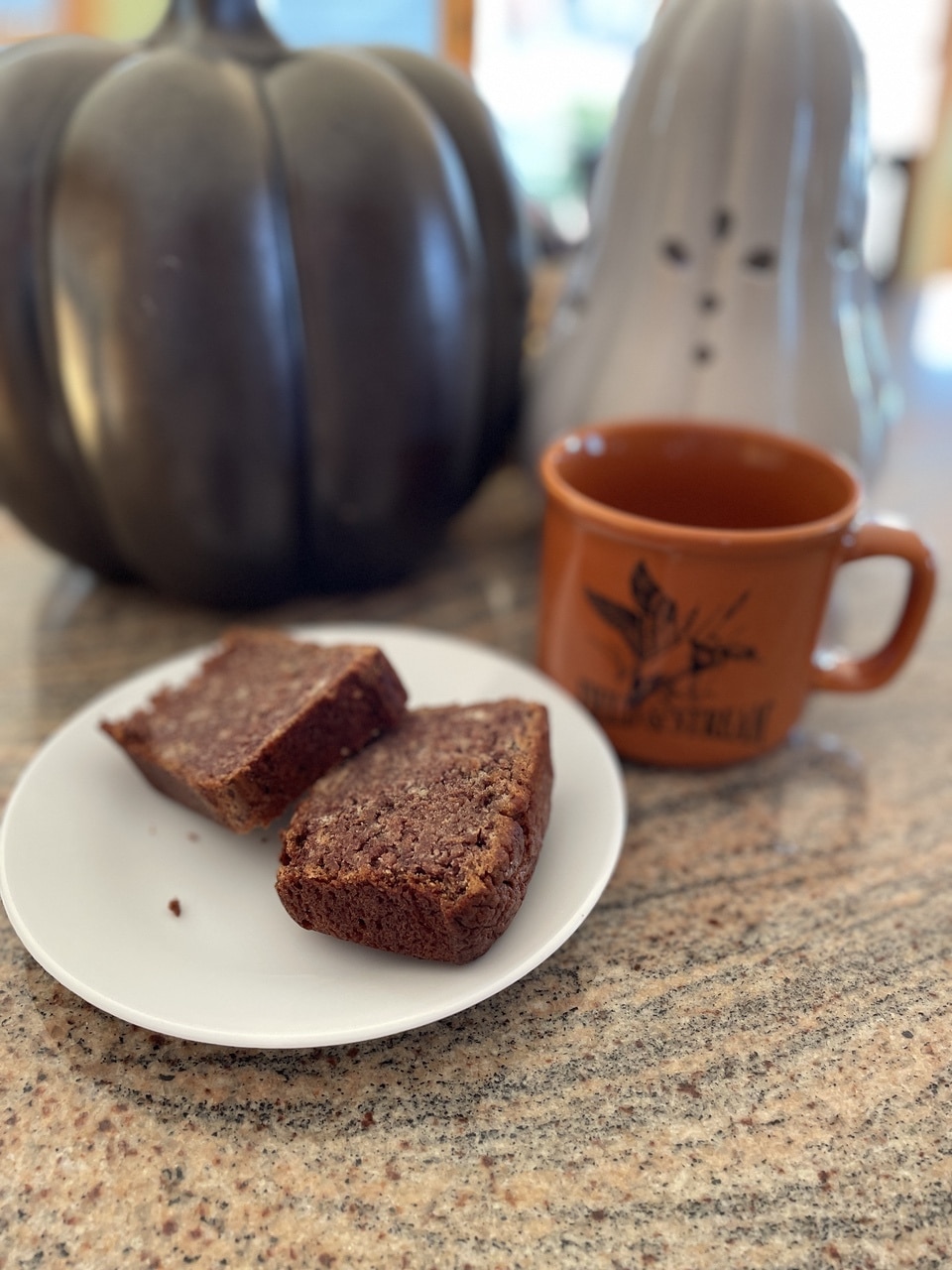
In the meantime, this bread recipe is delicious, and if you don’t have persimmons, you could always substitute pumpkin.
Publisher/Editor Barbara Baird is a freelance writer in hunting, shooting and outdoor markets. Her bylines are found at several top hunting and shooting publications. She also is a travel writer, and you can follow her at https://www.ozarkian.com. View all posts by Barbara Baird